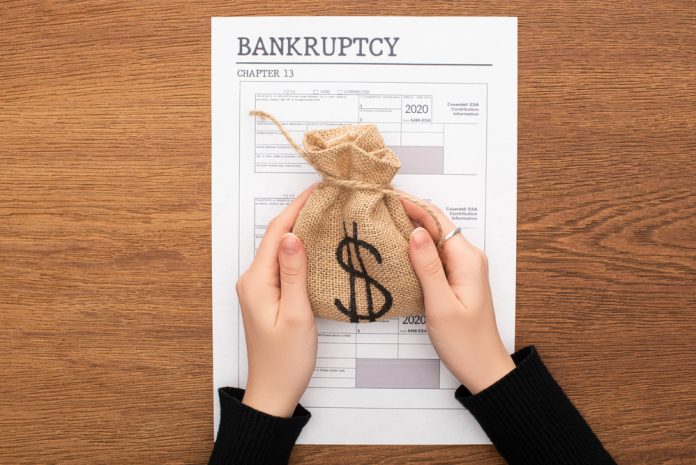Are you considering filing for bankruptcy? Or, perhaps you’ve been told bankruptcy is an option, but you’re not sure it’s the right move. Are you trying to push forward with all your might as a last-ditch effort before facing the inevitable?
While pushing forward can be the right choice for some people, it’s not always smart. Here are 5 signs that filing for bankruptcy is the better option.
1. You’ve got a mountain of debt not easily paid off
How much debt do you owe? Thousands? Tens of thousands? Hundreds of thousands? If your debt is higher than what you can reasonably pay off with your current income, filing for bankruptcy is likely your best choice.
If your income won’t cover your bills in a reasonable amount of time, you’ll end up working yourself to exhaustion just to barely make a dent in your debt. In the end, you’ll still need to file for bankruptcy. Trying to pay it all off without a high enough income will only postpone the need to file.
Chapter 7 bankruptcy will discharge any unsecured debts
If you don’t have the income to pay your debts, you’ll be filing Chapter 7 bankruptcy. This means that any unsecured debt you have will be discharged after your non-exempt assets are liquidated to pay your creditors.
You’ve probably heard about people being forced to sell their homes during a bankruptcy. Exempt property varies by state, but if you’re in Florida you probably don’t need to worry about losing your home. Florida has a homestead exemption rule that makes your primary residence untouchable, provided that residence is one of the following:
- Situated on up to ½ acre in a city
- Situated on up to 160 contiguous acres in an unincorporated county.
Other states have similar homestead exemption rules, so before you worry about losing your house, check with a lawyer to find out how your state handles homes during a Chapter 7 bankruptcy.
2. You’re living on credit
Living on credit means your debt is increasing on a daily basis. It’s better to cut your losses as quickly as possible rather than try to hold on in a way that only drives you further into debt.
This applies even if you’re using credit cards to pay off former credit cards. You might be getting better interest rates, but if you’re living on credit you’re continuously racking up debt.
3. You’re considering withdrawing from your 401(k) account to pay your bills
This is a sure sign that you’re headed for financial disaster. You should never withdraw from your 401(k) to pay basic bills. If you’re in that kind of situation, bankruptcy can provide great relief.
4. Your home is about to be foreclosed
Does your mountain of debt include a mortgage with past-due payments? If your home is in danger of foreclosure, that’s a good reason to file for bankruptcy.
5. You’re willing to live a moderate lifestyle after bankruptcy
Getting a loan will be tough after a bankruptcy. Even if you find a lender willing to loan you money, the loan amount will be small and you’ll be charged a high-risk interest rate.
After bankruptcy, you’ll need to live within your means according to your income. That might require downsizing your living space by moving into an apartment or renting a smaller house where basic bills won’t be so high.
You’ll also need to be willing to downgrade your car. If you’re used to driving a new car, making payments, and trading it in for a newer model every couple of years, that won’t be easy after bankruptcy. You won’t have the high credit scores car dealerships want to see for leased vehicles, and you won’t be able to get a regular car loan. You’ll need to buy a used car that you can own outright with no payments.
Bankruptcy is complicated – consult legal counsel
Before filing for bankruptcy, consult with an attorney to see if you should file under Chapter 7 or Chapter 13. Your circumstances will be unique to your debt situation, and it’s possible that the court might require you to pay back certain debts you were hoping to be free from.
Remember, while bankruptcy might be the smart choice, there are consequences. For instance, your name and personal information will appear in court records that are publicly accessible by anyone. In the event that you have the income to cover your bills, seek financial counseling first. If that doesn’t work, consult a lawyer about bankruptcy.
Find a Home-Based Business to Start-Up >>> Hundreds of Business Listings.

















































